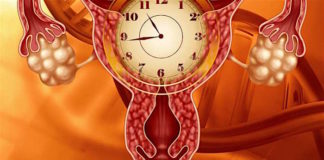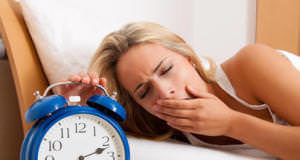Sleep Loss Linked to Heart Disease, Weight Gain, Hypertension, Diabetes and...
Lack of sleep can make you sick. And while everybody has the occasional restless night, for those who suffer from chronic insomnia – some...
Menopause and Sleepless Nights Make Women Age Faster
Two new studies reveal that menopause and the insomnia is often causes can make women age faster. The dual findings, published in the July 25 issues of the Proceedings...
Anti-Anxiety Drugs, Sleeping Pills Linked to Increased Risk of Death
Anti-anxiety drugs and sleeping pills have been linked to an increased risk of death, according to new research published in BMJ, the official journal...
Study Confirms Notion Of “Beauty Sleep”
Swedish researchers present data confirming that that people deprived of sleep for long periods appear less attractive and more unhealthy than those who are well rested. John Axelsson and colleagues conducted an experiment study involving 23 healthy, sleep deprived adults (ages 18 to 31 years) who were photographed and 65 untrained observers (ages 18 to 61 years) who rated the photographs.
Disrupted Sleep Linked to Neurodegenerative Conditions, Alzheimer’s Disease
Broken Cellular 'Clock' Linked to Brain Damage
A new discovery may help explain the surprisingly strong connections between sleep problems and neurodegenerative conditions such as...
Sleeping Pills Increase Cardiovascular Events in Heart Failure Patients
Sleeping pills increase the risk of cardiovascular events in heart failure patients by 8-fold, according to new research from Japan. The findings were presented at...
Less Sleep Leads To More Eating And More Weight Gain, According...
Sleeping just five hours a night over a workweek and having unlimited access to food caused participants in a new study led by the University of Colorado Boulder to gain nearly two pounds of weight.
Anti-Anxiety Drugs, Sleeping Pills Linked to Increased Risk of Death
Anti-anxiety drugs and sleeping pills have been linked to an increased risk of death, according to new research from the University of Warwick.
The large...
Changing Our Clocks: New Research Explores How Our Bodies Keep Time
Our alarm clocks may spring forward on March 9, but our biological clocks may take longer to adjust. That’s because our internal clocks are so tightly wound to many physiological and behavioral processes. Researchers have learned that circadian rhythms—the 24-hour cycles that keep our bodies on time—are involved in sleep, weight gain, mood disorders, and a variety of diseases. Now, they’ve made remarkable strides in identifying...
Medications For Insomnia, Allergies And Incontinence Shown To Cause Cognitive Impairment
Drugs commonly taken for a variety of common medical conditions including insomnia, allergies, or incontinence negatively affect the brain causing long-term cognitive impairment in older African-Americans, according to a study appearing in the July 13, 2010 print issue of Neurology, the medical journal of the American Academy of Neurology.
Wakeup Call For College Students: New Research Finds You Need To...
University of Cincinnati research finds that college students could be undermining their own education, simply because they're not practicing proper sleep habits. The study, led by Adam Knowlden, a UC doctoral student in UC's Health Promotion and Education Program, also holds recommendations for students to form better sleep habits that will ultimately enhance their learning.
Higher Death Risk With Sleeping Pills
People are relying on sleeping pills more than ever to get a good night's rest, but a new study by Scripps Clinic researchers links the medications to a 4.6 times higher risk of death and a significant increase in cancer cases among regular pill users.

















